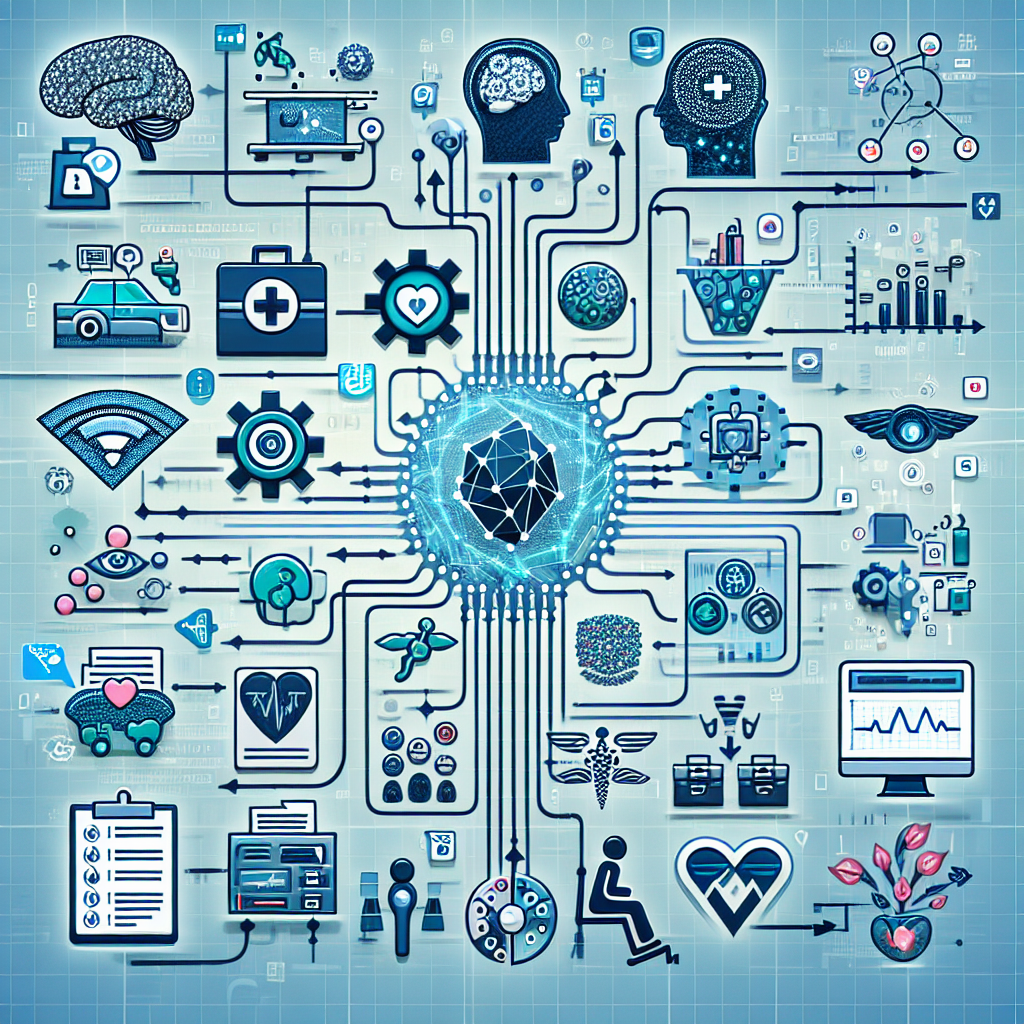In recent years, the integration of artificial intelligence (AI) in healthcare has been rapidly growing, revolutionizing the way healthcare workflows are optimized. AI has the potential to improve patient outcomes, increase efficiency, reduce costs, and enhance decision-making processes in healthcare settings. In this article, we will explore the various ways in which AI is being integrated into healthcare workflows and the benefits it brings to both patients and healthcare professionals.
1. Electronic Health Records (EHR) Management:
One of the key areas where AI is being integrated into healthcare workflows is in the management of electronic health records (EHR). AI algorithms can analyze vast amounts of data from EHR systems to identify patterns, trends, and insights that can help healthcare professionals make more informed decisions. For example, AI can help predict patient outcomes, identify potential risks, and suggest personalized treatment plans based on individual patient data.
2. Medical Imaging Analysis:
AI-powered medical imaging analysis is another area where AI is making a significant impact in healthcare workflow optimization. AI algorithms can analyze medical images such as X-rays, CT scans, and MRIs to detect abnormalities, tumors, and other medical conditions with a higher degree of accuracy than traditional methods. This can help healthcare professionals diagnose conditions earlier, leading to better treatment outcomes and improved patient care.
3. Predictive Analytics:
AI is also being used in healthcare workflows to conduct predictive analytics, which involves analyzing historical data to predict future outcomes. By using AI algorithms to analyze patient data, healthcare organizations can predict disease outbreaks, identify high-risk patients, and optimize resource allocation to improve patient outcomes and reduce costs. Predictive analytics can also help healthcare professionals make more informed decisions about patient care, leading to better outcomes and a more personalized approach to treatment.
4. Virtual Health Assistants:
Virtual health assistants powered by AI are becoming increasingly popular in healthcare settings. These virtual assistants can provide patients with personalized health information, assist with appointment scheduling, answer medical questions, and even remind patients to take their medications. By using AI-powered virtual assistants, healthcare organizations can improve patient engagement, reduce administrative burdens on healthcare professionals, and provide patients with access to healthcare information and support 24/7.
5. Drug Discovery and Development:
AI is also being used in healthcare workflows to accelerate the drug discovery and development process. AI algorithms can analyze vast amounts of data to identify potential drug candidates, predict their efficacy, and optimize drug development timelines. By using AI in drug discovery, healthcare organizations can bring new medications to market faster, reduce costs, and improve patient access to innovative treatments.
Benefits of AI Integration in Healthcare Workflow Optimization:
1. Improved Patient Outcomes: By using AI algorithms to analyze patient data, healthcare professionals can make more informed decisions about patient care, leading to better treatment outcomes and improved patient satisfaction.
2. Increased Efficiency: AI can help streamline healthcare workflows, automate repetitive tasks, and reduce administrative burdens on healthcare professionals. This can lead to increased efficiency, reduced costs, and more time for healthcare professionals to focus on patient care.
3. Cost Reduction: By using AI to optimize healthcare workflows, healthcare organizations can reduce costs, improve resource allocation, and increase revenue. This can lead to a more sustainable healthcare system and better patient outcomes.
4. Enhanced Decision-Making: AI can provide healthcare professionals with valuable insights, predictions, and recommendations to support their decision-making processes. By using AI-powered tools, healthcare professionals can make more informed decisions about patient care, leading to better outcomes and improved patient satisfaction.
5. Personalized Medicine: AI algorithms can analyze individual patient data to suggest personalized treatment plans based on a patient’s unique characteristics and medical history. This personalized approach to medicine can lead to better treatment outcomes, reduced side effects, and improved patient satisfaction.
FAQs:
Q: What are some common challenges in integrating AI into healthcare workflows?
A: Some common challenges in integrating AI into healthcare workflows include data privacy and security concerns, regulatory compliance issues, interoperability challenges, and resistance to change from healthcare professionals.
Q: How can healthcare organizations ensure the ethical use of AI in healthcare workflows?
A: Healthcare organizations can ensure the ethical use of AI in healthcare workflows by establishing clear guidelines and policies for AI use, ensuring transparency in AI algorithms and decision-making processes, and involving stakeholders in the development and implementation of AI-powered tools.
Q: Will AI replace healthcare professionals in the future?
A: While AI has the potential to automate certain tasks and improve efficiency in healthcare settings, it is unlikely to replace healthcare professionals entirely. AI can augment the skills and expertise of healthcare professionals, leading to better patient outcomes and improved quality of care.
Q: How can healthcare professionals prepare for the integration of AI into healthcare workflows?
A: Healthcare professionals can prepare for the integration of AI into healthcare workflows by staying informed about the latest AI technologies and trends, participating in training programs and continuing education courses, and collaborating with AI experts and data scientists.
In conclusion, the integration of AI into healthcare workflows is transforming the way healthcare is delivered, leading to improved patient outcomes, increased efficiency, reduced costs, and enhanced decision-making processes. By leveraging the power of AI, healthcare organizations can optimize their workflows, improve patient care, and create a more sustainable and effective healthcare system for the future.

